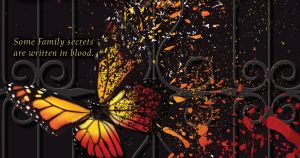
Interview with April Henry about Girl, Stolen
April Henry’s main character in Girl, Stolen is a well-researched, well-written example of blindness, and we were thrilled to discuss the book with her.

April Henry’s main character in Girl, Stolen is a well-researched, well-written example of blindness, and we were thrilled to discuss the book with her.

Don’t Touch is an insightful look into the life of a girl with OCD, and we were delighted to interview author Rachel M. Wilson about this wonderful debut.

The Categorical Universe of Candice Phee is a fun, well-written book, if an imperfect autism read.

We sat down with NYT bestselling author Leigh Bardugo to talk about her most recent series, its depiction of disability, and more!
Which are our contributors’ least favorite disability tropes?

Magic and technology often minimize disability in SF/F. How can authors meaningfully engage with disability and the ways that speculative elements can affect disabled characters?

Despite noticing some minor inaccuracies and overlooked details, I’m very impressed with the effort the author put into creating an accurate portrayal of the autoimmune condition ITP.

We invite Courtney Summers to the blog to discuss researching and writing mental illness, disability in her zombie novel, and the lack of diversity in apocalyptic narratives.

Audiobooks are an essential part of making reading as accessible as possible, so we’re excited to sit down with marketing manager Jennifer Rubins and head of production Dan Zitt and talk about the behind-the-scenes process of audiobooks.

I can’t tell you how many times people have been dismissive or incredulous about my mental illness, simply because I don’t fulfill their preconceived notions about bipolar individuals.